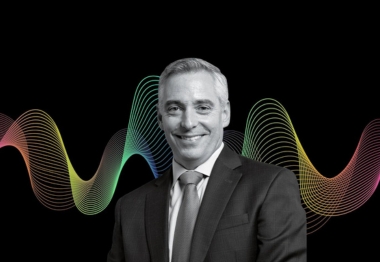More than Dialysis: DaVita CEO Outlines Vision on FORTUNE Leadership Next Podcast

“What we want, more than anything, is to transform from a dialysis company to a kidney care company,” DaVita CEO Javier Rodriguez said during an appearance on the Fortune Leadership Next podcast last month. “And in order to do that, at the center of it all, has to be the patient.”
During an interview with hosts Alan Murray and Michal Lev-Ram, Rodriguez discussed the scale of the kidney disease crisis and how DaVita has invested in building out a patient-centric model of care and providing clinical teams with the right tools and resources for informed decision-making and intervention across the kidney disease spectrum.
Because kidney disease doesn’t start with or end with dialysis.
Often, individuals do not realize their kidney function begins to decline. “The hard part is that it’s very silent,” Rodriguez explained on the podcast. “Kidney disease is very hard to detect.” Because declining kidney function can often come with few or even no symptoms, people may not learn they have an issue until they need treatment—more than 50% of people who need treatment crash onto dialysis or start it in an unplanned fashion.[1]
With patients at the center of Rodriguez’s vision, DaVita has invested in predictive modeling, technologies and partnerships, along with programs and services all aimed at addressing this.
|
"What we want, more than anything, is to transform from a dialysis company to a kidney care company.” —Javier Rodriguez CEO of DaVita |
”"If we can put you on a monitor and put our AI and our intellectual resources to work,” Rodriguez said, “we can start to say the difference between patient A and patient B is that one is actually going to progress in their disease, and then we can perform interventions to help slow down that progression.”
Through DaVita Venture Group, the kidney care company is also seeking ways to partner with health care innovators and experts to find new ways to help prevent kidney disease progression, manage comorbid conditions—including diabetes and heart disease—and improve health outcomes for individuals who need treatment.
One such investment was announced last year when DaVita acquired the transplant technology company MedSleuth to help ease access burdens on kidney transplant candidates..
“We went out and we said, what’s the best software out there that connects to over a third of the transplant centers in the United States? And we acquired it,” the DaVita CEO said. “What we want to do is make sure that our patients know where they are [in the transplant process] because it’s very hard and very tedious.”
MedSleuth isn’t the only transplant move DaVita has made—as they have continued to work with transplant centers across the country to support patients eligible and interested in pursuing transplant as they learn more about the process, undergo evaluation and maintain eligibility. DaVita announced earlier this year that more than 7,800 DaVita patients received the gift of transplant—more than any other year.
With DaVita continuously thinking how they can better serve the patients who need dialysis, the DaVita CEO made it clear on the podcast that transformation across the kidney care landscape—whether its forging strong relationships with government and private payors to work together to solve challenges facing kidney care and health care from a broader perspective.
Click here to listen to the Fortune Leadership Next podcast. |
“Everybody wants a solution,” Rodriguez said. “We need this health care system to work. It’s one of the only things we’re all going to use. And so, all eyes are on us as a community.”
[1] Molnar AO, Hiremath S, Brown PA, Akbari A. Risk factors for unplanned and crash dialysis starts: a protocol for a systematic review and meta-analysis. Syst Rev. 2016 Jul 19;5(1):117. doi: 10.1186/s13643-016-0297-2. PMID: 27431915; PMCID: PMC4950106.








